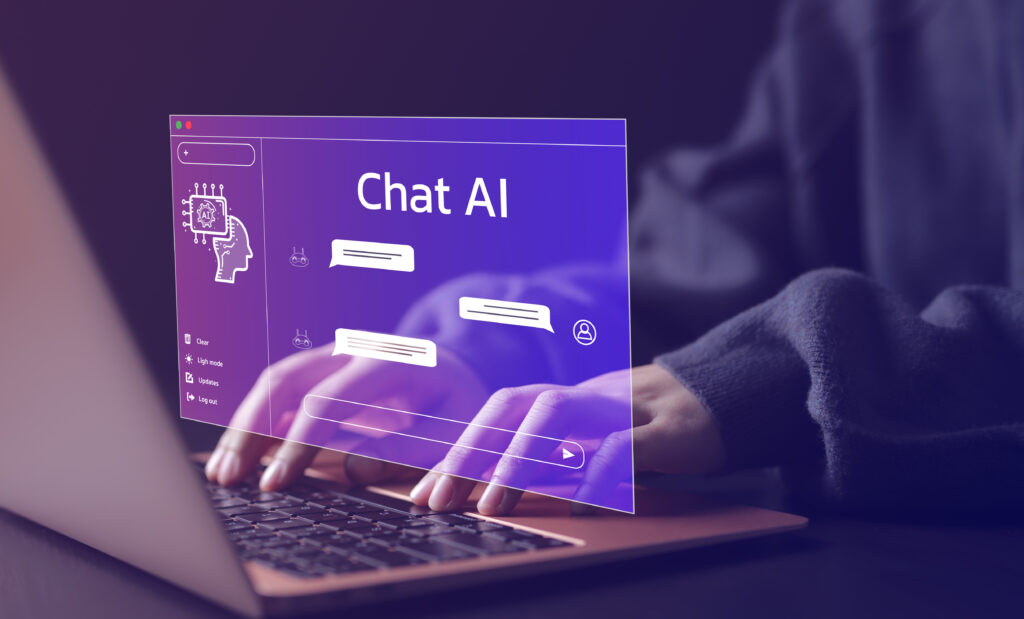The world of social work is evolving, and technology is driving this transformation. Among the most exciting advancements is the integration of Artificial Intelligence (AI) into social work practices. From streamlining administrative tasks to improving decision-making, AI has the potential to enhance the way social workers support their clients and communities. But how can social workers leverage AI while staying true to the heart of their profession? This blog explores the role of AI in social work and how it can help you make an even greater impact.
What is AI, and Why Does It Matter in Social Work?
AI, or Artificial Intelligence, refers to computer systems designed to perform tasks that usually require human intelligence, such as learning, problem-solving, and decision-making. For social workers, AI can be a game-changer. It offers tools that analyze data, predict client needs, and identify risks, helping you provide better, more targeted support. But here’s the key: AI isn’t here to replace your empathy and expertise—it’s here to amplify them.
The Potential of AI in Social Work
1. Smarter Case Management
Managing cases can be overwhelming, but AI simplifies the process. It can help social workers organize case files, flag updates, and even send reminders for follow-ups. With AI handling the details, you can focus on building stronger relationships with your clients.
2. Risk Assessment Tools
AI excels at identifying patterns in data. Imagine having a tool that alerts you to clients at high risk of harm based on their history or behavior. These insights help you act quickly and effectively.
3. Efficient Resource Allocation
Finding the right resources for your clients is critical. AI tools can match clients with services faster and more accurately, ensuring they get the support they need without delays.
4. Predictive Analytics
What if you could anticipate a client’s needs before they escalate? AI’s predictive analytics make this possible, allowing you to provide timely interventions and prevent crises.

Benefits of AI for Social Workers
- Time-Saving: By automating routine tasks, AI gives you more time to focus on direct client work.
- Improved decision-making: Data-driven insights lead to more informed and effective decisions.
- Reduced Burnout: A lighter administrative burden means less stress and more energy for what matters most.
- Better Outcomes: When clients receive timely and tailored support, their outcomes improve—and so does your job satisfaction.
Ethical Considerations for AI in Social Work
Privacy and Data Security
When using AI tools, social workers in the U.S. must prioritize the privacy and security of client data. This includes ensuring compliance with regulations like the Health Insurance Portability and Accountability Act (HIPAA), which safeguards healthcare information. Social workers should ensure that client data is collected, stored, and processed securely. Clients must be informed about how their data will be used, and they have the right to access, control, and consent to how their information is handled.
Bias and Discrimination
AI algorithms can inadvertently perpetuate biases present in the data they are trained on. Social workers must be vigilant in identifying and mitigating bias in AI tools. This involves carefully selecting and curating training data, regularly monitoring the performance of AI systems, and ensuring that they are used in a fair and equitable manner.
Human Oversight and Accountability
While AI can be a powerful tool, it should never replace human judgment and empathy. Social workers must maintain oversight of AI-driven decisions and be accountable for the outcomes. It's crucial to establish clear guidelines and protocols for the use of AI, ensuring that it is used ethically and responsibly.
Transparency and Explainability
AI systems should be designed to be transparent and explainable. Social workers should be able to understand how AI algorithms arrive at their decisions and be able to communicate these decisions clearly to clients. This builds trust and ensures accountability.
Professional Integrity
Social workers must adhere to professional codes of ethics, even when using AI tools. This includes maintaining confidentiality, respecting client autonomy, and promoting social justice. Continuous learning and professional development are essential to staying updated on the latest advancements in AI and its ethical implications.

Empowering Social Workers: Practical Tips for Integrating AI
1. Start Small
- Experiment with User-Friendly AI Tools: Begin by introducing AI tools that are easy to use and can quickly enhance your daily workflow. For example, using AI-driven scheduling tools like Acuity or Calendly can help automate appointment setting, ensuring more efficient use of your time. Likewise, AI-based data entry tools, like Grammarly for case notes or Otter.ai for transcription, can speed up the documentation process, allowing you to focus more on client interaction. These tools may not require in-depth technical expertise to use but can make a significant impact on your efficiency.
2. Stay Informed
- Take Advantage of Training Opportunities: Engage in courses and workshops that expand your knowledge of AI technologies and their specific applications in social work. Many educational platforms offer certifications that cover AI, machine learning, and data analytics, which can help you understand how to use these technologies responsibly in your practice.
- Stay Updated with Trends: Subscribe to newsletters, attend webinars, or join professional organizations such as the National Association of Social Workers(NASW), which regularly features content on tech innovations in social work. Being informed about the latest AI tools and research in your field will ensure that you stay ahead of the curve and make informed decisions about implementing AI.
3. Collaborate with Experts
- Work with Tech Professionals: To effectively integrate AI into your practice, it’s crucial to collaborate with AI experts, data scientists, or software developers. These professionals can help you assess the right AI tools for your practice, ensure seamless integration, and troubleshoot any technical challenges that arise. They can also guide you on how to use AI ethically and responsibly within the context of social work.
- Customized Support: Seek out opportunities to collaborate with tech experts to develop customized AI tools that meet the specific needs of your clients. This collaboration will help ensure that AI applications are designed with an understanding of the nuances of social work practice, such as client confidentiality and the importance of building trust.
4. Advocate for Ethical AI
- Push for Transparency and Fairness: As AI continues to be integrated into social work, it’s important to ensure that the tools you’re using are designed and implemented ethically. Advocate for AI systems that prioritize transparency, fairness, and accountability, especially when they are used to make decisions about vulnerable populations. AI should support your work, not replace the human judgment and empathy that are essential in social work.
- Ensure Responsible Use: Push for safeguards within your organization to ensure that AI tools are used in ways that respect client autonomy and privacy. You can advocate for the use of AI systems that are free from bias, ensuring equitable treatment for all clients, regardless of race, gender, or socioeconomic status.
The Future of AI in Social Work
The possibilities for AI in social work are vast. As technology continues to advance, social workers can expect even more tools to support their practice. However, the focus must always remain on empowering professionals to deliver compassionate, client-centered care. By embracing AI, you’re not just keeping up with the times—you’re setting the stage for a more effective and impactful future.
Conclusion
AI offers immense potential to transform social work, from streamlining workflows to improving outcomes for clients. But it’s not just about technology—it’s about how you use it to enhance your practice and amplify your impact. By embracing AI thoughtfully, you can unlock new possibilities while staying true to the core values of your profession. Are you ready to take the leap into the future of social work? The possibilities are endless.
Unlock New Opportunities with Verovian Social Work Agency
At Verovian Social Work Agency, we offer both locum and permanent roles across all social work specializations throughout the UK. Whether you're seeking flexible locum shifts or a permanent career, we have opportunities that suit your needs.
We also ensure that our placements are equipped with the latest technology, helping you integrate AI and other digital tools into your practice.
Ready to take the next step? Register with us today to access exciting opportunities and receive the support you need to thrive in the evolving world of social work.





